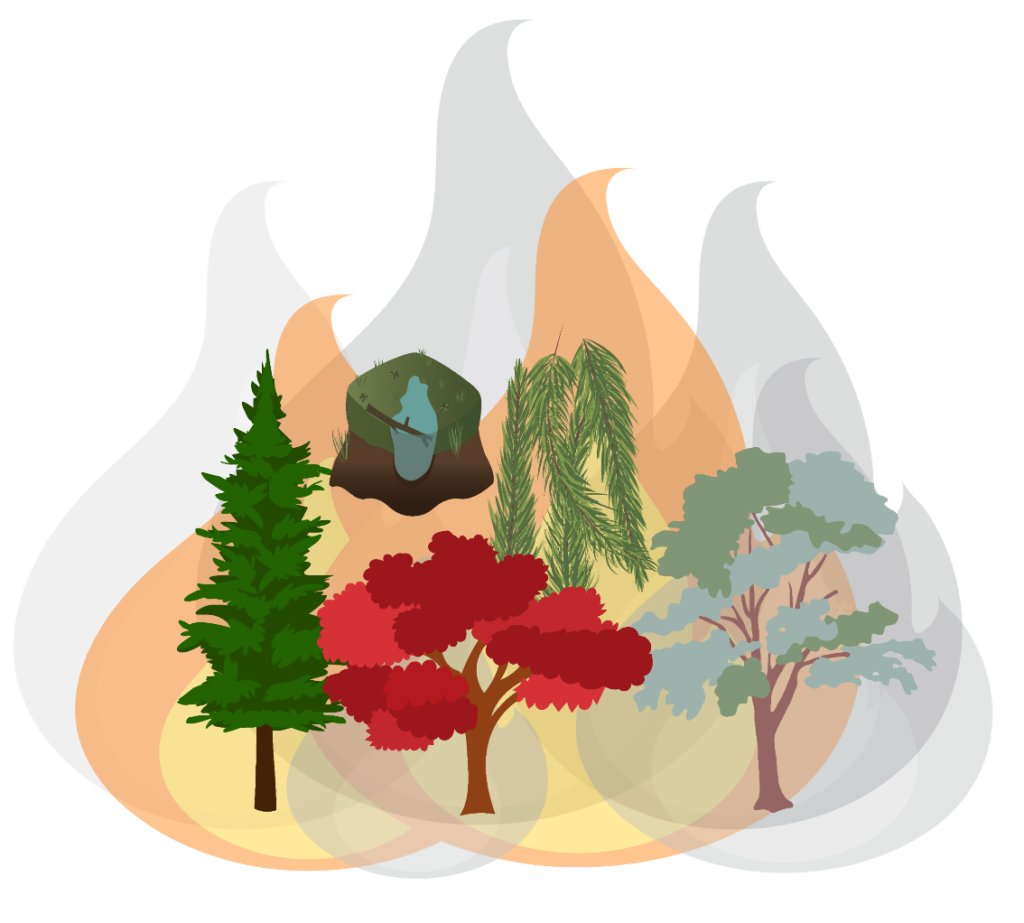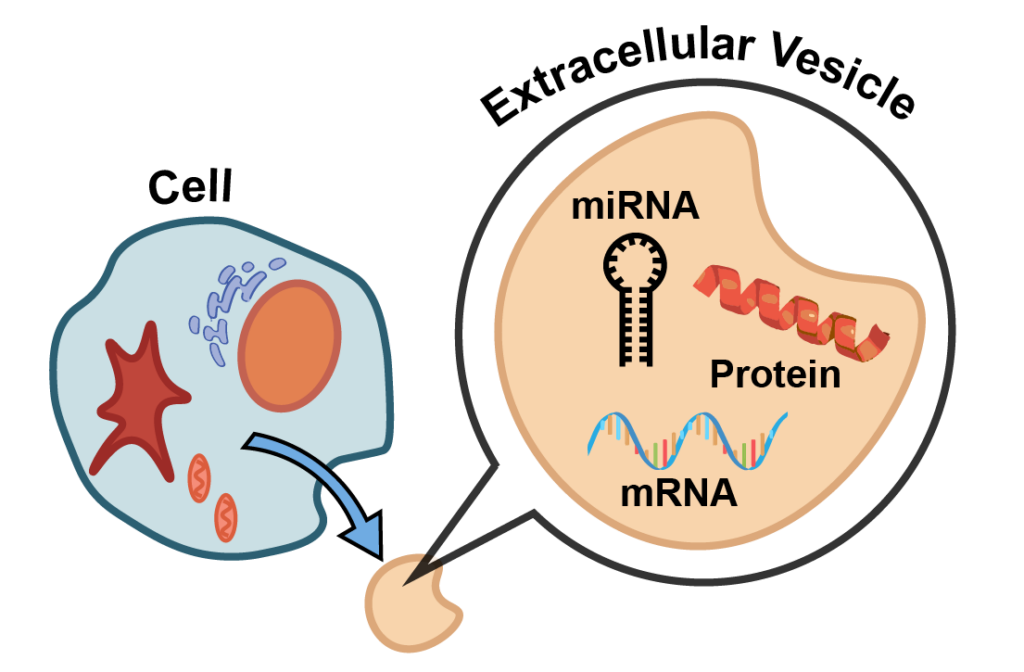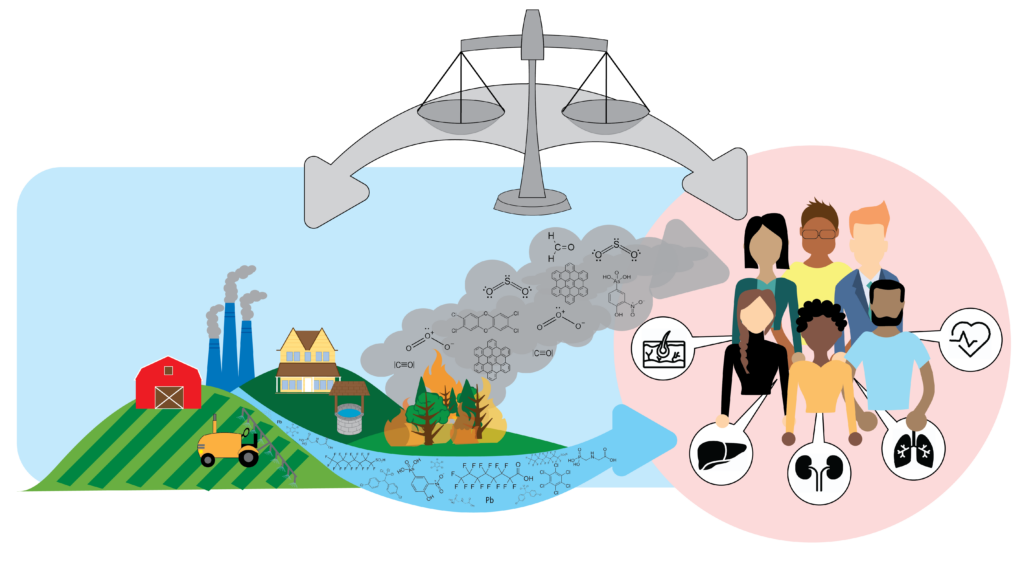Research
Our research team is aimed at unraveling relationships between environmental exposures and health outcomes, with a focus on complex mixtures at growing prevalence in the environment. We uniquely address this goal by coupling advanced in silico methods with molecular toxicology approaches to evaluate environmental mixtures. Major themes of our current research include the following:
(1) Mixtures modeling to identify ‘bad actors’ in the atmosphere.
A focus of our research is to test the toxicity of complex mixtures that can form in the atmosphere, including wildfire smoke and pollutants in urban environments. A unique aspect of our work is computational-based evaluation of relationships between mixtures components and toxicological endpoints. These mixtures modeling approaches yield insight on which chemicals/chemical groups drive toxicity in complex air pollutant exposures.

(2) Evaluating extracellular vesicles as novel mediators of human disease
Our research continues to develop and expand capabilities surrounding extracellular vesicle technologies. We carry out isolation methods, based on solvent exchange, size exclusion chromatography, and/or protein-based pull down, to process biological samples and elucidate the roles of extracellular vesicles in cell-to-cell communication and disease outcomes.

(3) Translating exposure science and toxicology into risk assessment and policy decision making.
A primary mission of the Rager lab is to integrate data from next-generation technologies into the regulatory arena to better protect public health. Our findings highlight the importance of regulating human exposures to chemicals based on the best available science enabled through integrated -omics assessments.

(4) Developing and disseminating training for computational research in environmental health.
The Rager Lab has developed and launched several data analysis training initiatives aimed at supporting trainees in their development of computational skillsets now needed to meet the current demands of 21st century science. Example resources can be found on this site including TAME: publicly available training materials for data science in environmental health.

